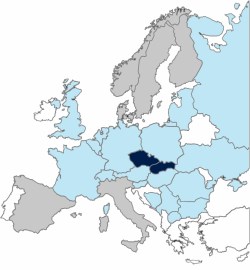Within the KBC Securities group, Patria can leverage on a network of almost 100 corporate finance professionals across Europe clustered around strong local franchises.
Patria
KBC Securities
- Belgium, France, Poland, Hungary, Romania, Bulgaria, Germany, Slovenia, Serbia, Montenegro, Bosnia & Herzegovina, Macedonia, Russia, Ukraine, the Baltic states, United Kingdom
